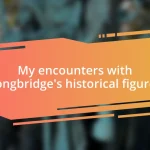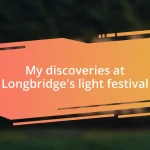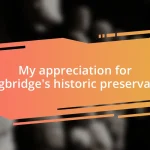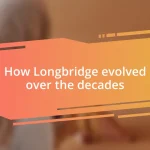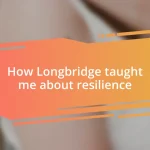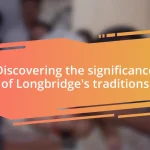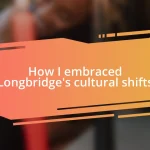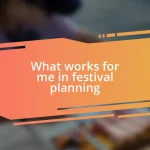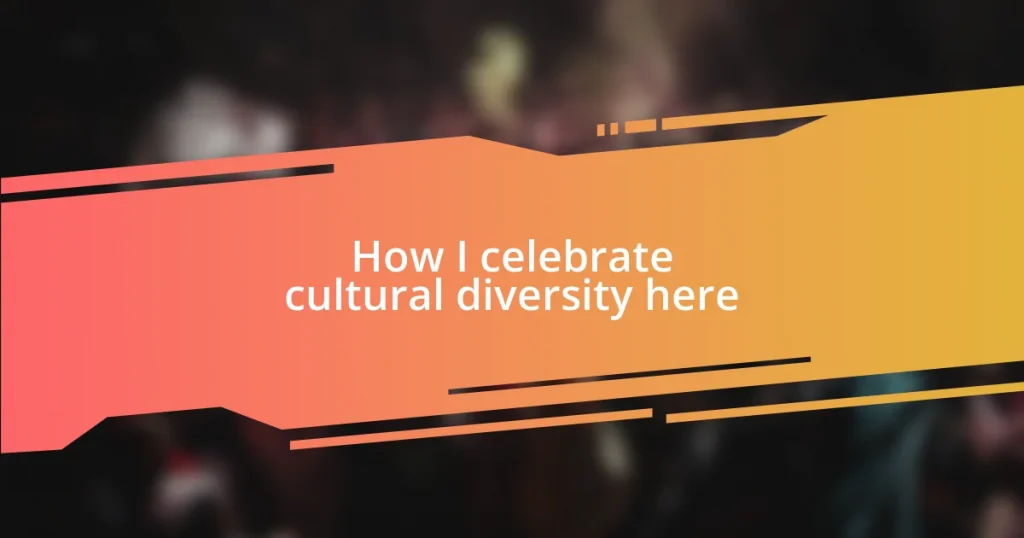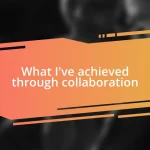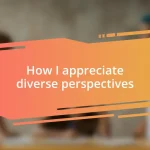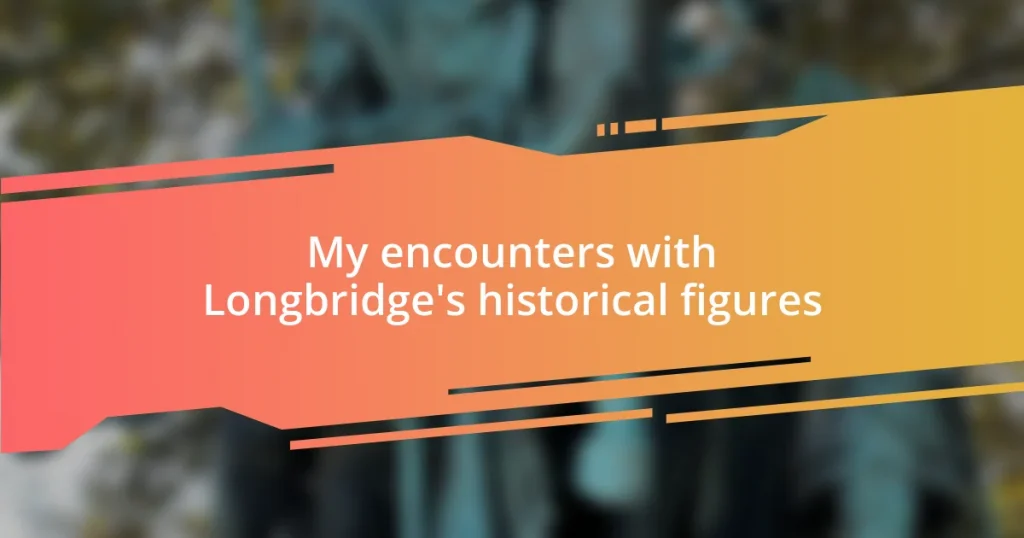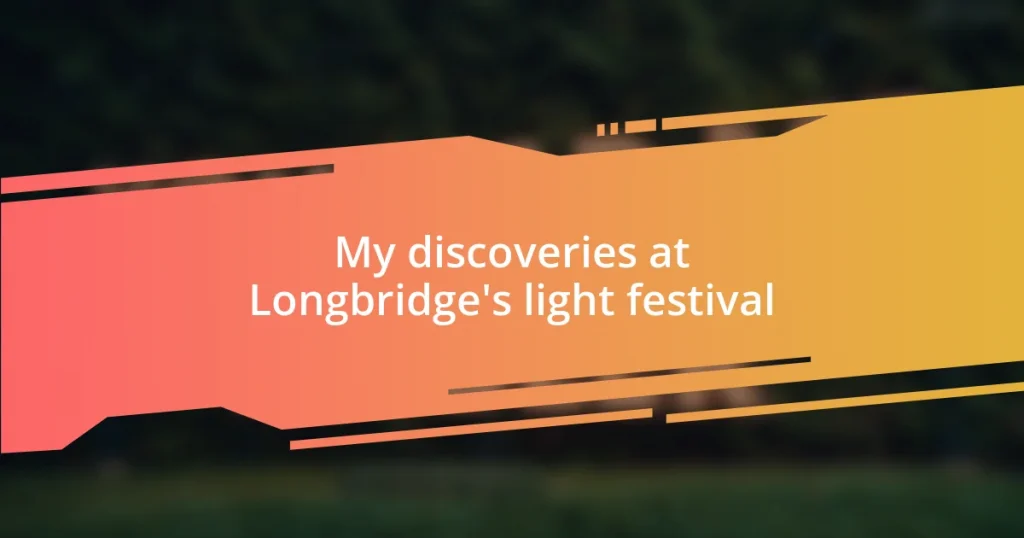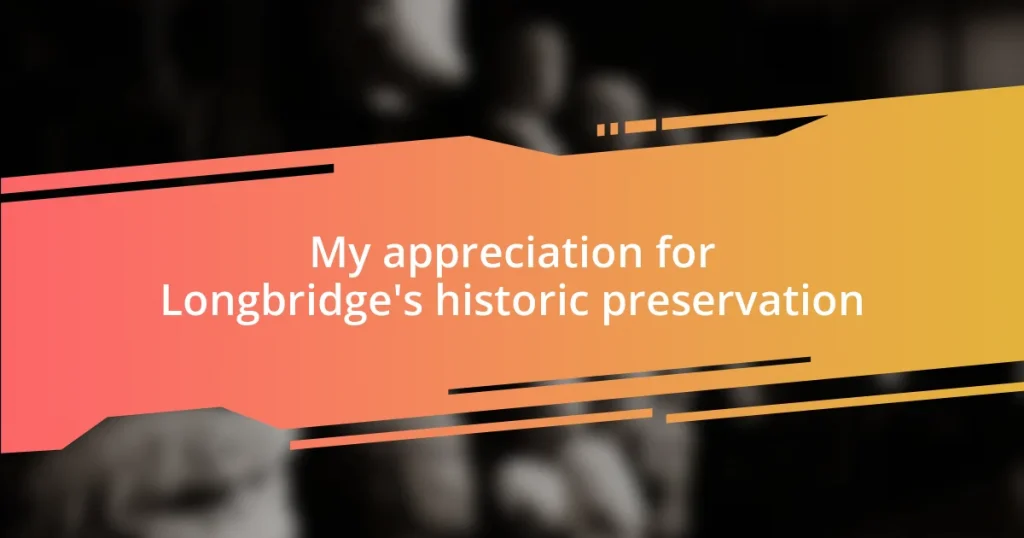Key takeaways:
- Cultural diversity enriches lives by fostering empathy, understanding, and breaking down stereotypes through shared experiences and celebrations.
- Participating in community events, such as cultural festivals and storytelling nights, enhances awareness and appreciation of diverse traditions and customs.
- Encouraging inclusivity in activities through food, arts, and collaboration promotes a sense of belonging and unity among different cultural groups.
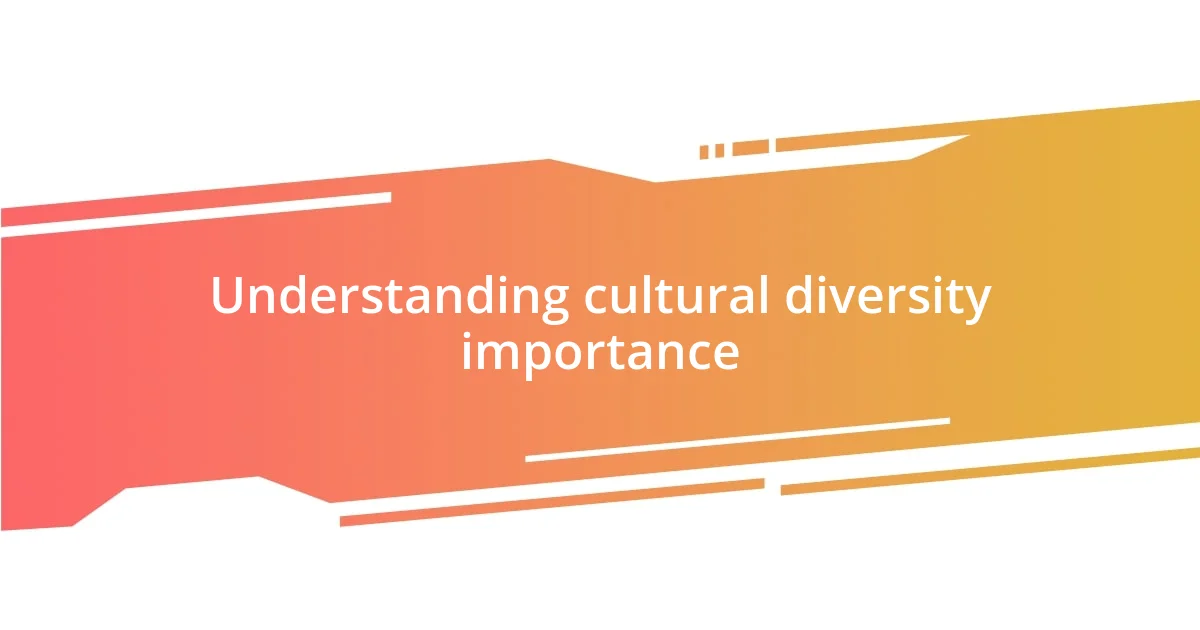
Understanding cultural diversity importance
Cultural diversity is vital because it enriches our lives in ways we often overlook. I remember when I attended a Diwali celebration, surrounded by vibrant colors and delightful smells. It struck me how much I learned about not just the festival itself but also about the values of community and family that transcend boundaries. Isn’t it fascinating how one evening can offer a glimpse into a world so rich and different from our own?
Experiencing different cultures fosters empathy and understanding. I recall a potluck dinner with friends where we brought dishes from our respective heritages. Sharing stories while tasting new flavors sparked meaningful discussions about our backgrounds. It made me realize: how can we truly understand each other if we don’t embrace the unique experiences that shape our lives?
Acknowledging and celebrating cultural diversity helps break down stereotypes and fosters inclusivity. I often reflect on a time when I faced assumptions based on my background, and it reminded me of the importance of dialogue. Have you ever found yourself in a similar situation? Engaging with diverse perspectives not only enriches our own lives but also creates space for compassion and connection in our communities.
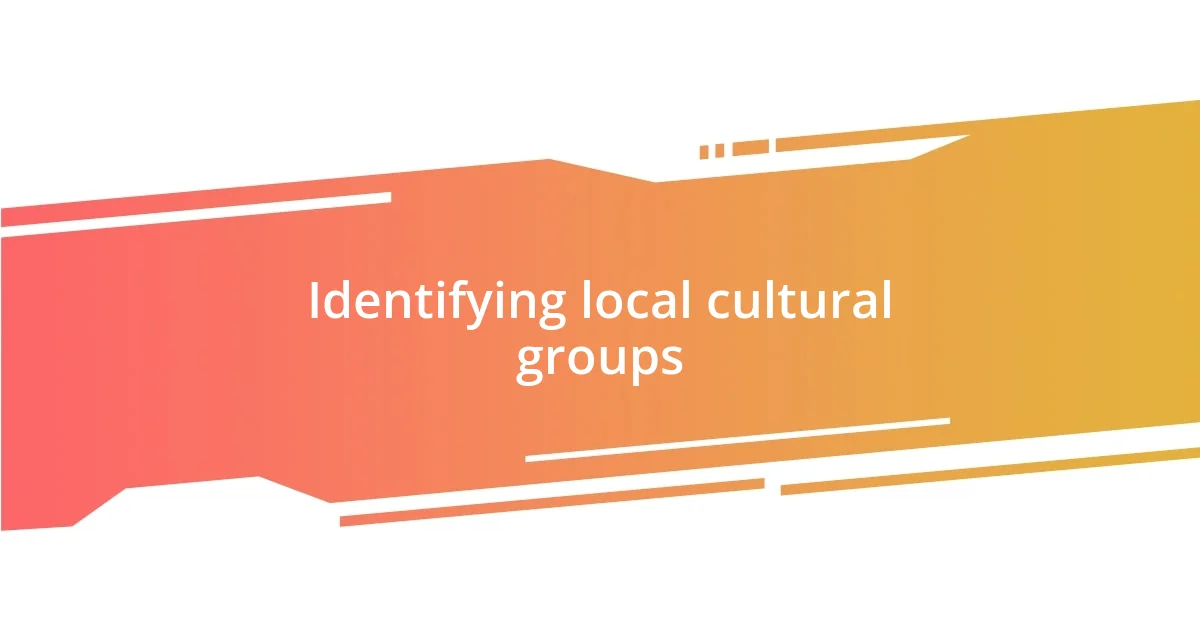
Identifying local cultural groups
Identifying local cultural groups can sometimes feel overwhelming, but I find that starting with community centers is a great approach. For instance, during a recent visit to my local cultural hub, I discovered numerous groups celebrating everything from Asian festivals to African heritage events. I remember engaging with a group of Latin American parents hosting a festival, where I learned about their rich traditions and found myself invited to participate. It was a memorable experience that broadened my understanding of the vibrant tapestry of cultures in my own neighborhood.
Another way to identify local cultural groups is through social media platforms. I once joined a Facebook group dedicated to cultural events in my city, which led to discovering an incredible range of celebrations, workshops, and performances that I would have otherwise missed. Can you imagine the excitement of participating in an impromptu dance class showcasing dance styles from around the world? This connection not only enriched my social life but also deepened my appreciation for the diverse cultures surrounding me.
Finally, I believe local libraries and schools often host multicultural events, which can serve as fantastic gateways to connect with cultural groups. I recall attending a storytelling session at my library where local authors from different backgrounds shared their tales. This experience opened my eyes to the narratives that often go unheard and prompted me to seek out even more stories within my community. Isn’t it amazing how these spaces can lead us to discovering new friends and traditions?
| Cultural Group | Identifying Characteristics |
|---|---|
| Asian Community | Festivals, traditional foods, language classes |
| Latin American Community | Dance classes, music events, storytelling nights |
| African Community | Cultural fairs, art exhibits, community gatherings |
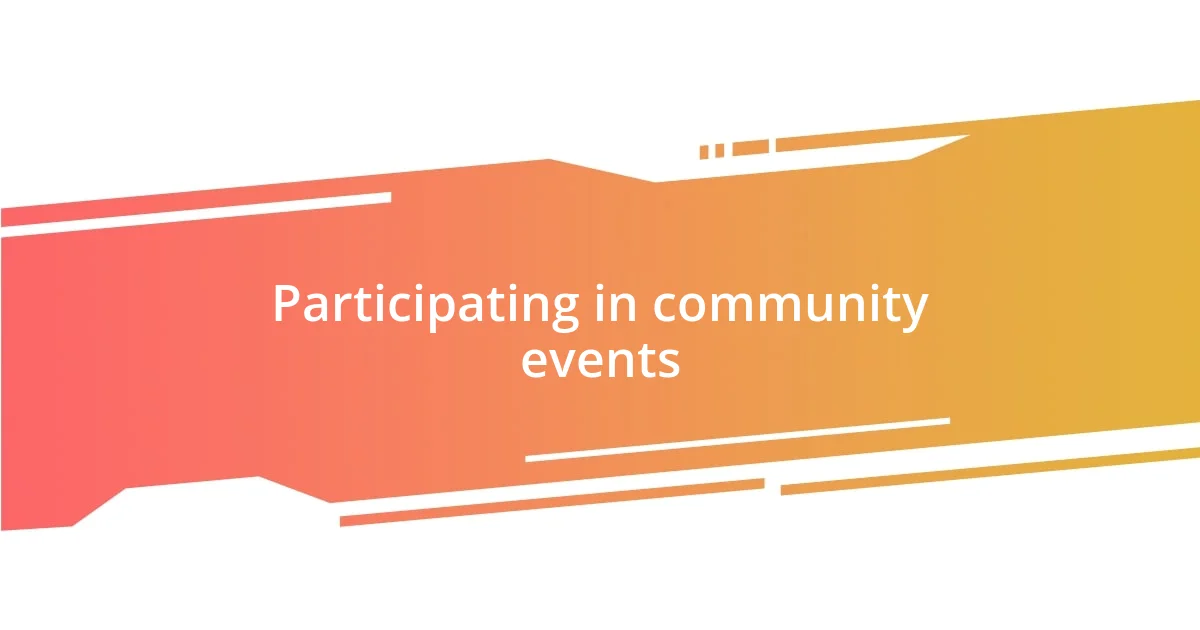
Participating in community events
Participating in community events truly enhances not only my understanding of different cultures but also fosters a sense of belonging. I’ll never forget the exhilaration I felt while dancing at a local festival celebrating Caribbean heritage. The lively music pulled me in, and I felt a rush of joy as I learned dance movements that had been passed down through generations. It’s an incredible feeling to lose yourself in the rhythm and become part of something bigger than yourself.
Here are some of the community events I’ve enjoyed over the years that celebrate diversity:
- Cultural Festivals: These often feature food, music, and art from various cultures. I once tasted a traditional dish that lingered in my memory long after the event.
- Workshops and Classes: I joined a class for traditional crafts, where I connected with others while learning to create beautiful pieces rooted in different cultures.
- Storytelling Nights: I cherish those evenings where local storytellers share their heritage through tales, allowing me to see the world through their eyes.
- Parades: There’s nothing quite like the vibrant energy of a parade showcasing costumes and traditions from around the globe. I always leave feeling inspired and uplifted.
Each of these experiences adds a new layer to my understanding of the diverse world we live in. When I engage in these events, I’m reminded of our shared humanity while appreciating the beautiful differences that make life so fascinating.
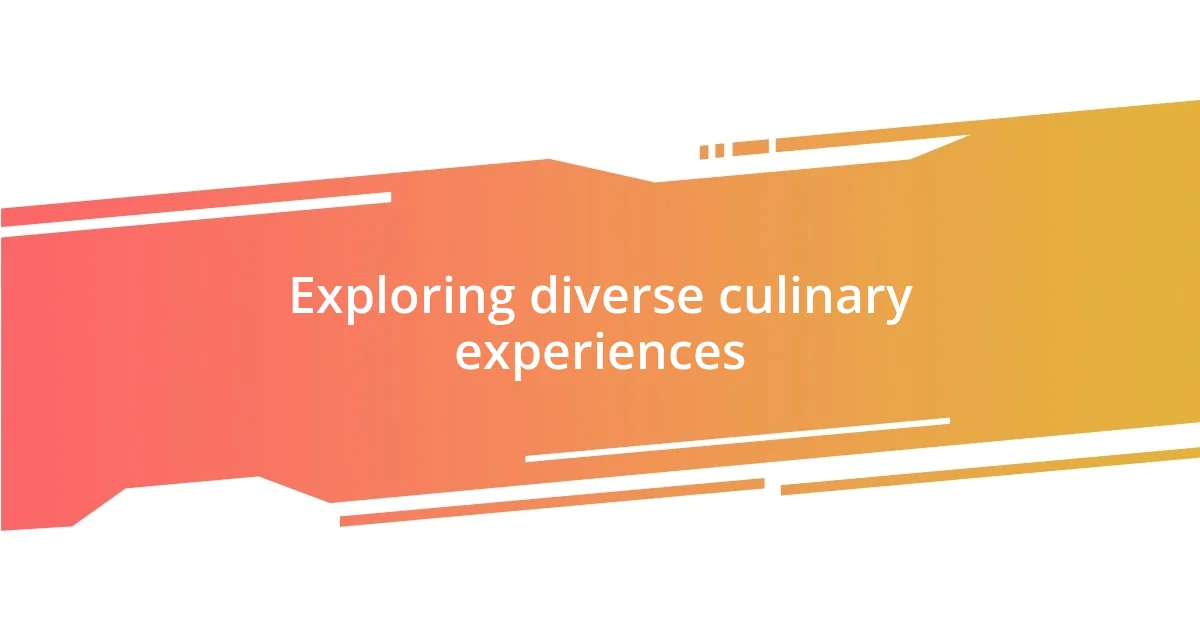
Exploring diverse culinary experiences
Exploring diverse culinary experiences has truly been one of the most delightful ventures in my journey of cultural appreciation. I remember a time when I attended a potluck dinner organized by a multicultural group in my neighborhood. The table was a colorful array of dishes, each telling its own story through flavors and aromas. From spicy Indian curry to delicate Japanese sushi, I felt as though I was embarking on a culinary world tour without leaving my city. Isn’t it fascinating how food can bridge gaps between different cultures and create connections?
I often seek out local restaurants that specialize in international cuisine, and each visit feels like a mini adventure. One memorable evening, I dined at a Somali restaurant where the owner personally walked me through their traditional dishes. The way she described the spices and history behind each recipe was captivating, especially when she shared tales of family gatherings centered around food. It struck me how these meals are not just about nourishment but are deeply intertwined with identity and history.
Cooking at home also offers me a chance to explore diverse cultures. Recently, I tried my hand at making a Moroccan tagine using spices I’d never worked with before. You can imagine the excitement of building layers of flavor, bringing me closer to a culture I previously only knew through the lens of a restaurant. Cooking, like eating out, enables me to express my love for cultural diversity in a tangible way. Have you ever found solace in the kitchen, discovering a world beyond your own through a recipe? It’s an intoxicating experience that fuels my curiosity and passion for food.
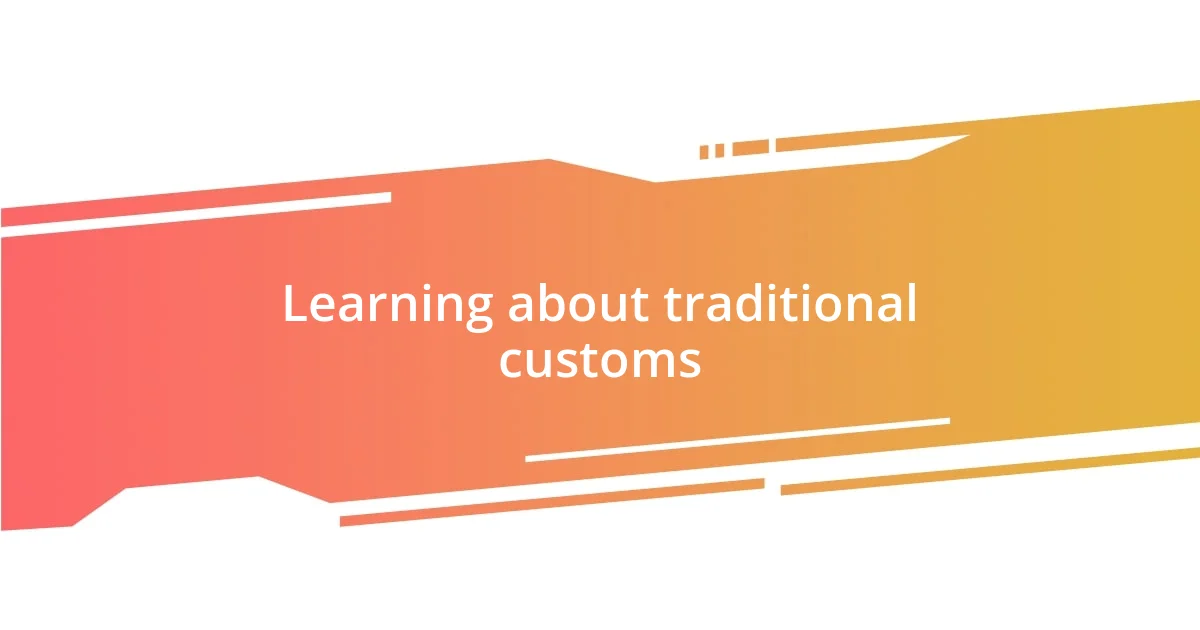
Learning about traditional customs
Learning about traditional customs deepens my appreciation for cultural diversity and opens my eyes to new perspectives. One experience that stands out is when I attended a Diwali celebration. The atmosphere buzzed with excitement as families shared the significance of each ritual. I vividly remember lighting lamps and hearing stories about the triumph of light over darkness. It felt electric to partake in something so rich with meaning and history.
Another memorable moment was when I participated in a traditional Native American powwow. The vibrant regalia and rhythmic drumming pulled me into an age-old celebration of heritage. I felt a profound respect as dancers shared their stories through movement. Have you ever connected with a culture through its art? It’s fascinating how customs like these serve as windows into the hearts of different communities, revealing the threads that bind us all.
In my own life, I try to incorporate traditional customs into my daily routine. For instance, I’ve started celebrating Día de los Muertos by creating an altar to honor those who have passed away. The process of gathering mementos and learning about the significance of each item became a personal journey. It’s a beautiful reminder that customs keep memories alive, allowing us to honor those who’ve shaped our lives. What traditions resonate with you, and how do they enhance your understanding of cultural diversity?
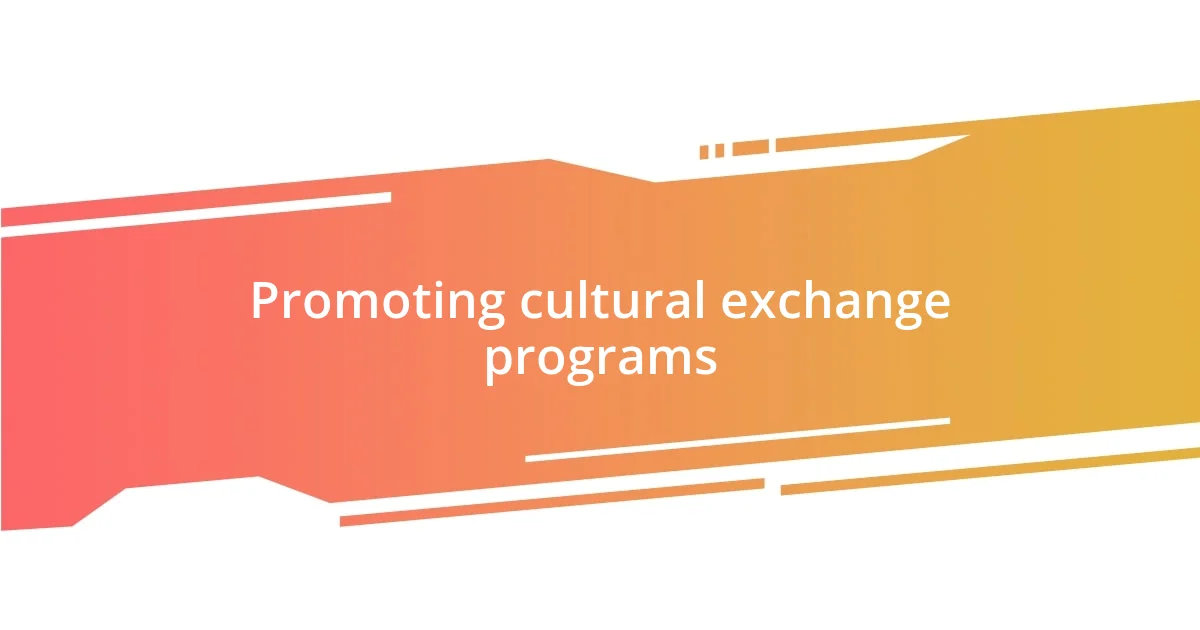
Promoting cultural exchange programs
Promoting cultural exchange programs ignites a powerful connection between diverse communities and cultivates a sense of shared humanity. I vividly recall when my city hosted a cultural exchange festival that partnered local schools with international students. The energy was contagious as students showcased their heritage through performances, food stands, and art. Walking through the festival, I felt a beautifully woven tapestry of stories, each unique yet resonating with the shared theme of discovery.
One of the highlights was a workshop where children from different backgrounds worked together on a mural. I watched in awe as their individual styles blended harmoniously into a collective masterpiece, representing unity in diversity. It made me wonder—how can we encourage more of these creative collaborations? The friendships formed in these environments often lead to lifelong connections and understanding, showcasing the profound impact these programs can have on shaping perspectives.
On a personal note, I once hosted an exchange student from Brazil during one of these programs. Sharing my world with her and experiencing hers in return opened my eyes to the rich narratives that unknowingly shape our lives. It’s an irreplaceable learning experience that promotes empathy and appreciation. Have you ever had a similar moment where cultural exchange made you rethink your own background? I believe these connections are essential for building bridges in our increasingly globalized society.
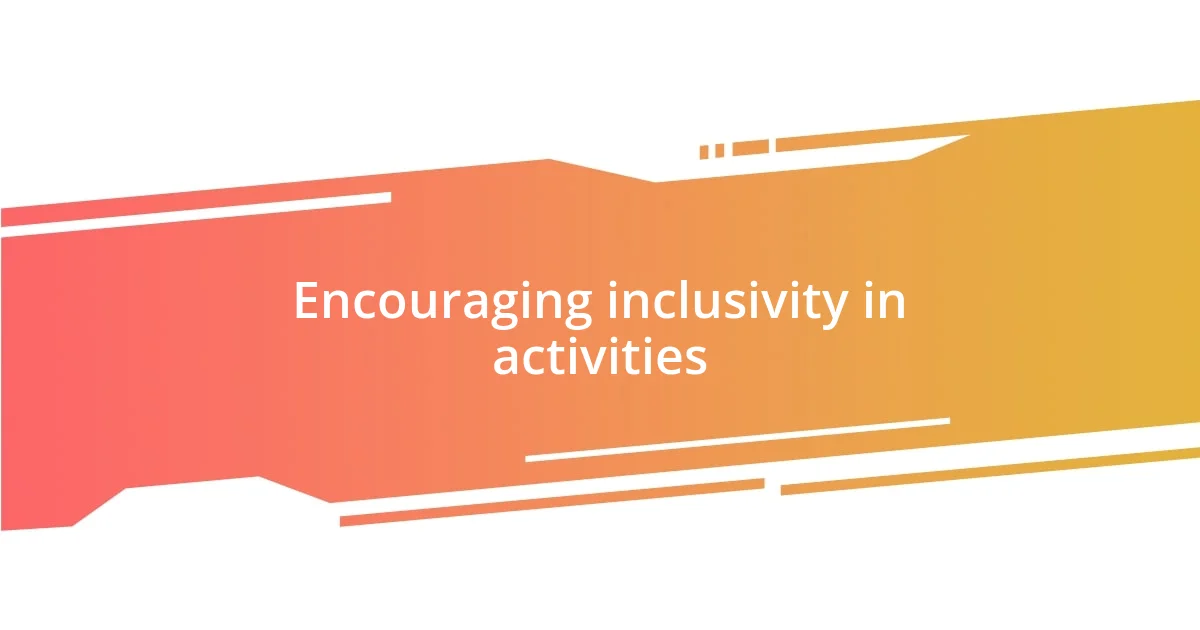
Encouraging inclusivity in activities
Inclusivity in activities plays a crucial role in fostering a sense of belonging for everyone involved. I remember organizing a community picnic where I invited neighbors from various cultural backgrounds to bring dishes from their heritage. Sharing food created an amazing atmosphere; everyone was eager to try new flavors and chat about their traditions. What surprised me most was how one simple act—bringing a dish—could spark conversations that broke down barriers and formed new friendships.
When I led a workshop on traditional crafts, I encouraged participants to share their techniques and stories. Not only did this empower individuals to showcase their skills, but it also provided an opportunity for everyone to learn something new together. I can still picture the joy on a participant’s face as they taught others to weave techniques passed down through generations. Isn’t it remarkable how hands-on activities can facilitate understanding and appreciation for different cultures?
In another instance, I volunteered at an organization that organized inclusive sports events. I witnessed how creating mixed teams brought together individuals of varying abilities and backgrounds, leading to shared laughter and teamwork. Watching a friend from a different culture encourage another participant was a heartwarming reminder of how inclusivity can foster unity. Have you ever participated in an event that made you feel truly included? I believe these experiences are vital—making space for all voices and talents enriches our communities and broadens our perspectives.
